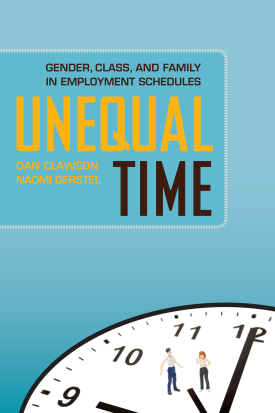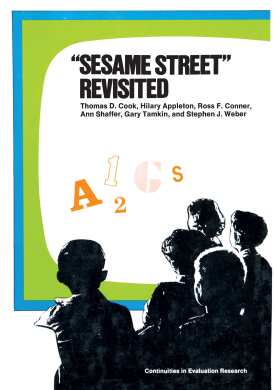Winner of the 2015 Max Weber Award from the Organizations, Occupations, and Work Section of the American Sociological Association
Winner of the 2015 William T. Goode Distinguished Book Award from the Family Section of the American Sociological Association
Winner of the 2015 Distinguished Scholarly Book Award from the Labor and Labor Movements Section of the American Sociological Association
“How long is the workday, and how thick the paycheck? To these questions, scholars have offered answers. But the key questions, Dan Clawson and Naomi Gerstel propose in this fascinating book, are: how shielded are we from unpredictable demands? And how do we control the unpredictability we’re made to face? Comparing doctors, nurses, EMTs and nursing assistants, men and women, the authors explore the lives of the ‘haves’ and ‘have-nots’ of such control, as well as the friends, co-workers and family on whom they call to create orderly lives in an increasingly disorderly world. A thought-provoking and very important read.”
—Arlie Hochschild, professor emerita, University of California, Berkeley
“Unequal Time is a meticulously and creatively researched study of how time at home and work is understood and managed. Time is not only an individual possession, but is relational. ‘Normal unpredictability’ rules. Dan Clawson and Naomi Gerstel explore the gaps between the rhetoric and realities of workplace flexibility. They find that flexibility is not just a matter of choice, but power.”
—Robert Aronowitz, M.D., professor and chair, History and Sociology of Science,
University of Pennsylvania
“Dan Clawson and Naomi Gerstel provide a powerful account of how inequalities are at the core of many of the vexing problems of work and family. Based on in-depth multi-method research in the health care industry, and this compelling book will change the way you think about work time issues. Essential reading for scholars and practitioners alike.”
—Juliet Schor, professor of sociology, Boston College
“This book's careful research design pays enormous dividends: comparing four critical occupations in the health care sector, Dan Clawson and Naomi Gerstel generate important new insights into the ways class and gender inequalities interact to shape struggles for control over working time. Unequal Time demonstrates that gender and class advantage and disadvantage are deeply implicated in the dynamics of ‘work-family balance’ and ‘flexibility,’ complicating the conventional wisdom in a provocative and fruitful way. This book is indispensable for scholars, policymakers, and anyone who cares about working families.”
—Ruth Milkman, professor of sociology, The Graduate Center, CUNY
Life is routinely unpredictable. Control over one's time is a critical resource for managing that unpredictability, keeping a job, and raising a family. But the ability to control one's time, much like one's income, is determined to a significant degree by both gender and class. In Unequal Time, sociologists Dan Clawson and Naomi Gerstel explore the ways in which social inequalities permeate the workplace, reverberating through a web of time in which the schedules of one person shape the schedules of others in ways that exemplify and often exacerbate differences between men and women, the privileged and disadvantaged.
Unequal Time investigates the connected schedules of four health sector occupations: professional doctors and nurses, and working-class EMTs and nursing assistants. While the work-family literature mostly examines the hours people work, Clawson and Gerstel delve into the process through which schedules are set, negotiated, and contested. They show how workers in all four occupations experience the effects of schedule uncertainty but do so in distinct ways, largely shaped by the intersection of gender and class. Doctors, who are largely male and professional, have significant control over their schedules, though they often claim otherwise, and tend to work long hours because they earn respect from their peers for doing so. By contrast, nursing assistants, primarily female and working-class, work demanding hours because they face penalties for taking time off, no matter how valid the reasons. Without institutional support, they often turn to co-workers to help create more orderly lives.
Unequal Time shows that the degree of control that workers hold over their schedules can either reinforce or challenge conventional gender roles. When male doctors work overtime, they often rely on their wives and domestic workers to care for their families. Female nurses are more likely to handle the bulk of their family responsibilities, and use the control they have over their work schedules to dedicate more time to home life. Surprisingly, the authors find that in the working class occupations, workers frequently undermine traditional gender roles. Male EMTs often take significant time off for child care, and female nursing assistants sometimes choose to work more hours to provide extra financial support for their families. Employers often underscore these disparities by allowing their upper-tier workers the flexibility that enables their gender roles at home, while low-wage workers are pressured to put their jobs before any unpredictable events they might face outside of work.
We tend to consider personal and work scheduling an individual affair, but Clawson and Gerstel put forward the provocative hypothesis that time in the workplace is both collective and highly unequal. A valuable resource for workers' advocates and policymakers alike, Unequal Time illustrates how social inequalities in the workplace shape the lives of workers and their families.
DAN CLAWSON is professor of sociology at the University of Massachusetts, Amherst.
NAOMI GERSTEL is a distinguished university professor of sociology at the University of Massachusetts, Amherst.


